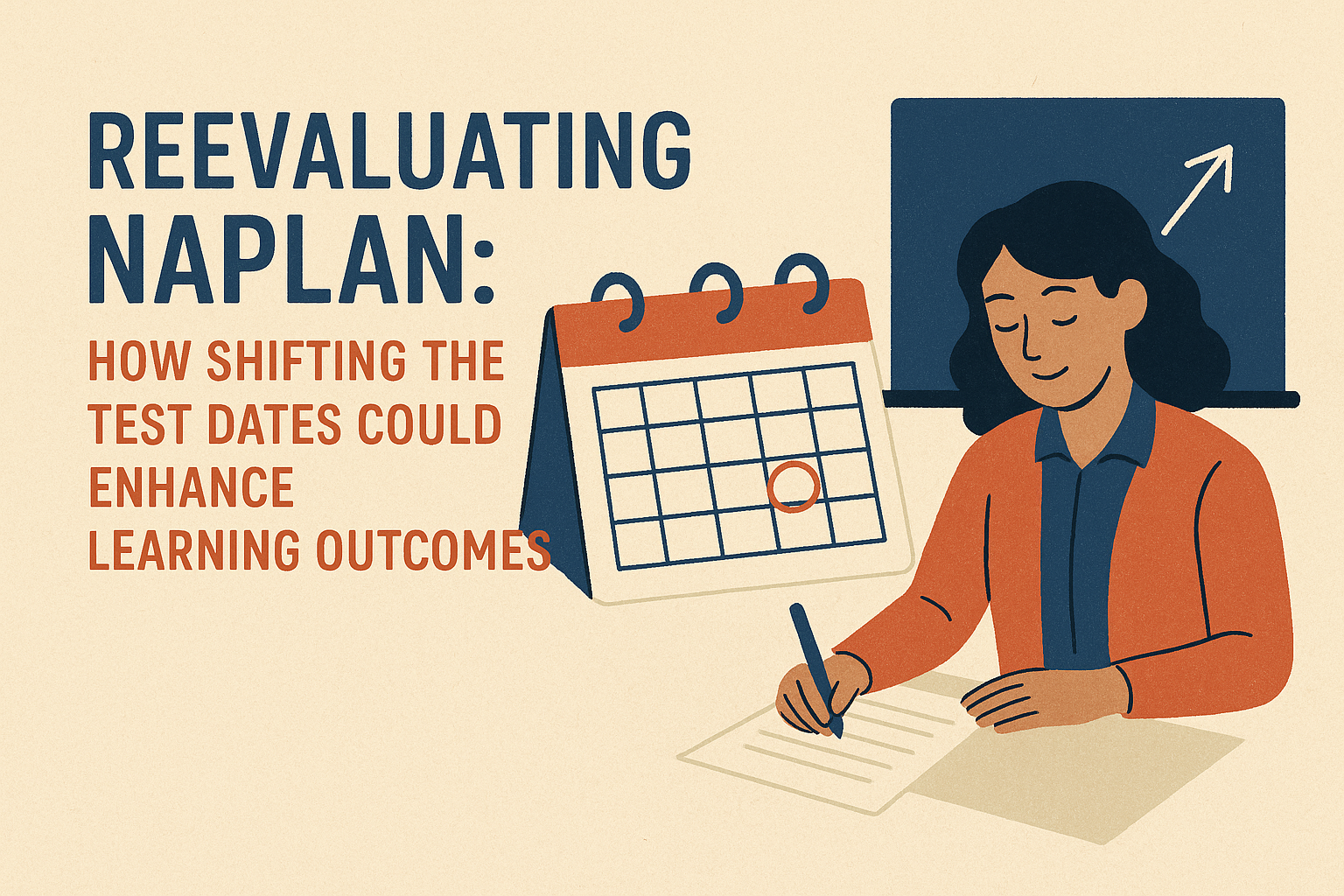
Reevaluating NAPLAN: How Shifting the Test Dates Could Enhance Learning Outcomes
Aussie Edu Hub
Love it or hate it, NAPLAN has become a key fixture in the Australian school calendar. This year, it’s arriving earlier than ever – set for March 15, a full two months ahead of previous years. But what does this shift actually mean for students, parents, and teachers? According to Dr Selina Samuels, Chief Learning Officer at Aussie Edu Hub, the change could be a step in the right direction.
“Moving the tests earlier gives teachers more time throughout the year to use the results in a meaningful way,” Dr Samuels explains. “They can analyse the data and adjust their teaching to meet students’ individual learning needs. This transforms NAPLAN into a more useful tool for both diagnosis and progress tracking.”
More Than Just a Date Change
NAPLAN 2023 also brings other updates. The NAP Sample assessments – which test Years 6 and 10 students in science, civics and citizenship, and digital literacy – will now occur in Term 2 instead of Term 3. These assessments, which were previously conducted every three years, will transition into optional annual assessments, to be phased in over the next three years.
“These subjects are increasingly important in preparing students for the future,” says Dr Samuels. “By testing them nationally, we’re creating benchmarks to ensure consistent teaching standards across the country. It also helps identify areas that need more focus or support.”
Tackling Student Anxiety
One of the long-standing concerns around NAPLAN is the stress it can cause—especially for younger students. Dr Samuels points out that much of this anxiety stems from lack of preparation.
“When students are underprepared, it naturally leads to anxiety. But by giving them time to build and consolidate their literacy and numeracy skills in advance, they’re more likely to feel confident,” she says.
She adds that NAPLAN isn’t just about assessment; it’s an opportunity for students to demonstrate essential academic skills that form the foundation for future learning.
“Helping students understand the structure of the tests is also key. NAPLAN questions, especially in maths and writing, can be unfamiliar. Giving students practice with the format allows them to demonstrate what they truly know.”
Practical Tips for NAPLAN Prep
To help students feel more prepared and perform at their best, Dr Samuels shares these practical strategies:
- Talk to your child’s teachers about how the school is preparing for NAPLAN. For students in Years 5, 7, and 9, reviewing past performance can help identify areas to improve.
- Pinpoint learning gaps early. Focus on core skills like time management, reading comprehension, and multi-step problem-solving.
- Practice with NAPLAN-style questions. This reduces the element of surprise and builds test-taking confidence.
- Teach test strategies. Encourage students to find ‘quick wins’ on multiple-choice sections and avoid getting stuck on tough questions.
- Adopt a growth mindset. Remind your child that NAPLAN isn’t a pass/fail exam – it’s a chance to show progress and apply skills learned in class or through tutoring.
- Follow up after results. Whether your child needs to catch up, stay on track, or stretch further, understanding the results helps you take the next best step.
“At Aussie Edu Hub, our tutors work closely with students on both skill-building and test strategies,” says Dr Samuels. “Our goal isn’t just success in NAPLAN, but building literacy and numeracy skills that last a lifetime.”



